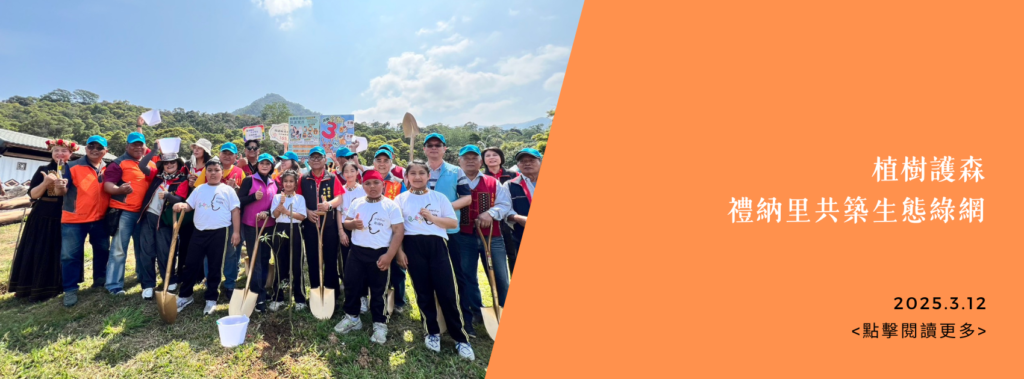Paiwan traditional clothing carries deep cultural significance. Beyond daily wear, it symbolizes social class, identity, and ethnic pride. Through intricate embroidery and symbolic totems, it reflects traditional beliefs and reverence for ancestral spirits. Especially during important ceremonies, traditional attire becomes a symbol of ancestral respect, social hierarchy, and communal unity. Each garment embodies generational craftsmanship and historical memory, reinforcing the Paiwan people’s connection to and preservation of their cultural heritage.

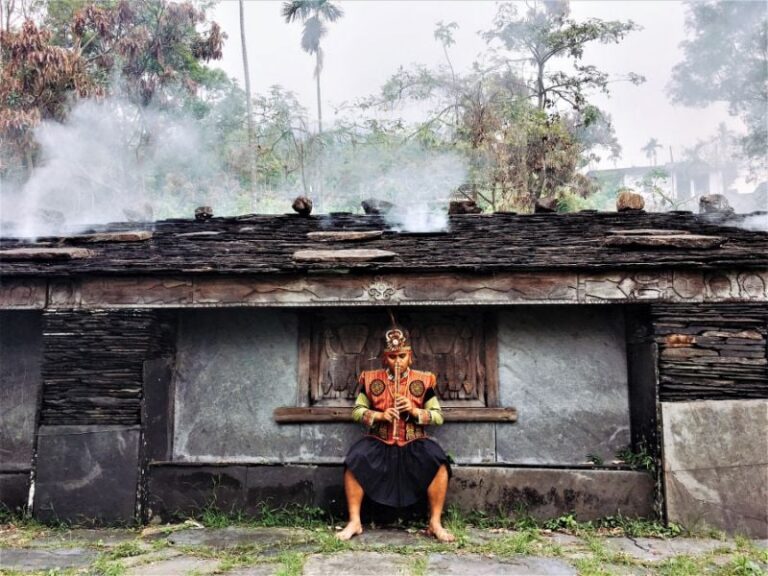
Located on the northwestern side of Dawu Mountain in southern Taiwan, this township is a lush paradise of green mountains and tranquil valleys—a land of Canaan blessed by God. Most of the local residents are of the Paiwan Indigenous group, with a smaller population of Rukai people. The community is hardworking, peaceful, and friendly, united by the common goal of “Deeply Rooted in Majia, Thriving Together.”
The area is rich in natural resources, producing well-known crops such as the “Red Ruby” (red quinoa) and “Green Emerald” (native mango). Other key agricultural products include pineapple, banana, papaya, pigeon pea, and Chinese toon. Majia Township is known as the homeland of red quinoa, leading the nation in both production and quality. Highly nutritious, red quinoa is rich in antioxidants and known for its cardiovascular and cancer-preventive benefits. In recent years, red quinoa products—promoted by the township office, local production teams, and the Red Quinoa Ambassadors—have been successfully marketed both domestically and internationally.
Tourists visiting the township often stop by the Red Quinoa Story House, a popular spot to learn about this crop and purchase local souvenirs. The township is also one of Taiwan’s top producers of native mangoes, known for their rich sweetness and high fiber content. These can be enjoyed fresh or made into green mango snacks, dried mango, or mango ice—a real treat! Most importantly, local farming practices follow friendly, organic, and toxin-free methods, reflecting the community’s commitment to sustainable agriculture.
Our township is home to many well-known scenic destinations, such as the Liangshan Waterfall, the Shan-Chuan Glass Suspension Bridge, and the Taiwan Indigenous Peoples Cultural Park. One of the newest attractions is the “Majia Hidden Gem – Old Vudavurane,” where a cluster of traditional slate houses in the Old Vudavurane settlement was recently awarded the Gold Medal in the “Culture and Heritage Sites” category by the Pacific Asia Travel Association. Below the settlement flows the Ailiao South Creek, where conservation efforts over the past three years have successfully restored the aquatic ecosystem, allowing tourists to enjoy fishwatching. Across the river via a suspension bridge lies Vatauan, the legendary origin site of the Paiwan people, making it an ideal route for a Paiwan cultural journey.
To protect the natural and cultural environment of Old Vudavurane, Vatauan, and the nearby “Majia Peach Blossom Land,” the township office has successfully applied for the construction of a dedicated road. Named “Pingshuan 5 – sisauma” (meaning “The Road Home” in the local language), the road connects Rinari Village to the Old Majia Village. Access is regulated: visitors must apply online in advance and, upon approval, may enter the area via a shuttle bus accompanied by a professional guide who provides commentary along the way.
Major annual events in Majia Township include: the Harvest Festival and Township Games in August, the Christmas celebrations in December, and the biennial National Red Quinoa Princess Pageant (held in varying months). The Harvest Festival is a time to thank the ancestors for a bountiful year. All residents return home for this grand event—much like Lunar New Year for Han people—dressed in traditional attire, singing and dancing in celebration. Visitors are welcome to join in the thousand-person circle dance and share in the festivities. Christmas is a major event as well, with the majority of residents being Christian. Celebrations are vibrant and widespread, with Christmas lights illuminating the villages in a truly magical display.
To promote red quinoa, the township hosts the National Red Quinoa Princess Pageant every two years to select a suitable spokesperson. This nationwide event is open to women of any ethnicity, aged 18 to 28.
Majia Township is a “Cittaslow” (Slow City). We value environmental conservation and a lifestyle centered on organic, toxin-free farming. That is why we joined the Cittaslow Alliance—to contribute to a better planet and create a more beautiful living environment for all.
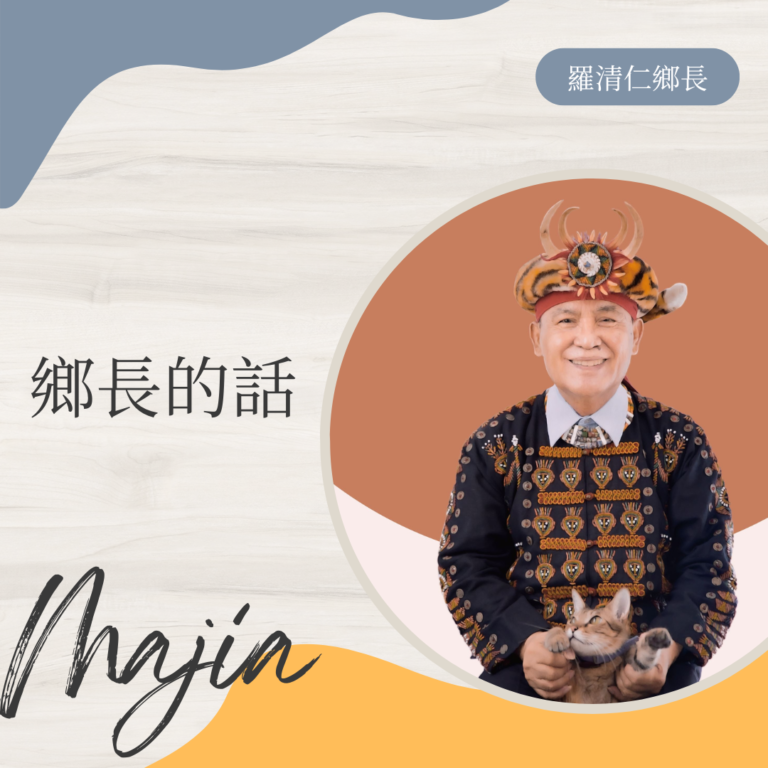
In recent years, tribal tourism has become a vital part of Indigenous economic development. By integrating cultural traditions, cuisine, homestays, and agroforestry ecology, the tourism industry has designed distinctive itineraries that draw visitors into Indigenous communities.
Majia Township is a beautiful and uniquely characteristic area, rich in natural, cultural, and ecological resources. It is home to many renowned sites, including the historic origin of the Paiwan people at the Old Paiwan Settlement and the Padain Eight-Source Slate House Cluster. Other scenic highlights include the Saravan Waterfalls and the prominent peaks of Mount Beidawu, Mount Baibin, and Mount Litin—all beloved for their breathtaking views and ecological diversity.
Down in the lowlands, the plains village of Sanhe has a 70-year history since its resettlement and cultivation. It is a key agricultural area of the township, producing a wide variety of crops. Here, visitors can enjoy picturesque rural landscapes, experience the simplicity and charm of village life, and taste fresh local produce such as the township’s prized native mangoes and other fruits and grains.
Majia is also home to many talented artisans, who create one-of-a-kind handmade crafts including wood carvings, bamboo weaving, embroidery, and leatherwork. Each item is crafted with care and offers visitors a chance to take home a piece of Majia’s beauty and creativity.
A visit to Majia brings you closer to its deep historical roots and vibrant folk culture. Every village here has its own unique traditions, history, and heritage—these are the treasures we cherish and our source of pride.
We warmly invite you to visit Majia Township and experience the blessings of nature firsthand. Thank you for your interest and support. The township office will continue striving to provide even better services for all. Wishing you good health and great success!

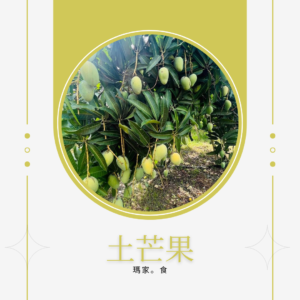
Native Mangoes
Majia Township is the largest production area of native mangoes in Taiwan, with approximately 300 hectares under cultivation. The harvest season typically falls between May and June.
Commonly known as “Shih-shi-á,” native mangoes were introduced to Taiwan in 1562. Ripe fruits have a sweet, slightly tangy flavor. Young mangoes are often made into preserved “green mango” snacks, while ripe ones are used for candied fruit. In 2015 and 2024, Majia held Native Mango Festivals featuring road runs, cycling tours, and mango quality competitions, successfully boosting the visibility of Majia’s native mangoes. These luscious fruits are another source of pride for the township—a true green gem of Majia.
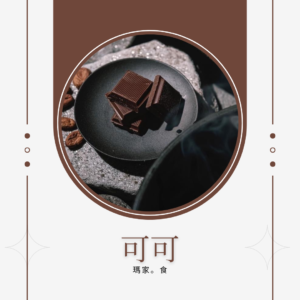
Cacao
Grown in the gravel and sandy riverbeds of the Ailiao River at the foot of Dawu Mountain, the cacao beans nurtured here develop a distinctive flavor—lightly acidic, rich, and sweet—thanks to attentive, eco-friendly cultivation.
In Meiyuan Village, Mr. Tu Guoyong of Sanhe Village produces and sells his own “Parase Cacao Beans,” which, crafted by indigenous chef Akame Peng Tian-en, earned a silver medal at the International Chocolate Awards. In 2024, local young farmer Chuo Li-chang received a Special Award at the AVPA Chocolate Competition in France for his 80% dark chocolate.
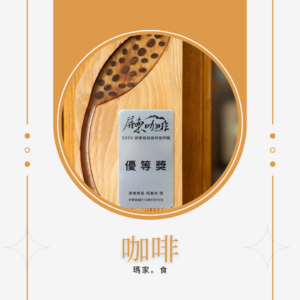
Coffee
In recent years, our township has achieved a three-time consecutive championship in the Pingtung Specialty Coffee Bean Evaluation and also won the title at the Taiwan Elite Coffee Invitational. All award-winning coffee farms are located within our township and have long been recognized by judges for their excellence in research, production, sales, branding, image, and quality.
Among them, “Lan Yun Green Sea” is a family-run enterprise by the Chuo family, dedicated to cultivating and roasting both coffee and cacao. Their commitment has earned them multiple honors in the Pingtung Specialty Coffee evaluations.
| 推薦餐廳 | 店家電話 | 負責人 | 地址 | 介紹 |
|---|---|---|---|---|
| 小農餐桌 | 0977-095691 | 目尼˙杜達利茂 | 屏東縣瑪家鄉三和村玉泉1-32號 | 以排灣傳統雜糧為核心,嘗試多元地使用部落小農提供的作物進行料理創作。 |
| 舒奈工作坊 | 08-7995981 0912-799570 | 陳枝月 | 屏東縣瑪家鄉三和村玉泉44-5號 | 提供新鮮的食材,過程中除了用心,還有滿滿的愛心。主要販售手工紅藜餅乾、紅藜鳳梨酥等。 |
| 永勝有機園 | 0925-769192 | 吳永勝 | 屏東縣瑪家鄉三和村美園31號 | 美麗後花園:清晨露珠閃耀著,一切感覺就像是投入母親懷抱般溫暖,大地之母滋潤植萬物,這就是有機木瓜的生長環境。 |
| 杜媽媽傳統美食 | 08-7990426 | 杜玉蘭 | 屏東縣瑪家鄉佳義村泰平巷104-13號 | 小米粽和糯米粽以月桃葉包裹,保留了道地的風味。 |
| 愛˙微笑手作烘焙坊 | 08-7610390 | Selep | 屏東縣瑪家鄉瑪家村和平路一段63號 | 是原鄉唯一專為身心障礙者創設的烘焙坊,坐落禮納里部落遊客服務中心旁。結合原鄉的可可產業與烘焙,為原鄉身障孩子提供就業機會。 |
| 好山林咖啡工坊 禮納里風情漫遊趣 | 08-7994358 0937-478305 | 羅仁光 | 屏東縣瑪家鄉瑪家村瑪卡札亞街23巷1號 | 提供豐富的服務,包括導覽規劃、餐飲、住宿、深度旅遊導覽、DIY體驗、自家農園生產的農特產品及伴手禮等。 |
| 嵐雲綠海 | 08-7997238 0912-132210 | 卓榮華 | 屏東縣瑪家鄉瑪家村瑪卡札亞街11巷1號 | 「嵐雲綠海山居風格館」為卓家人共同經營,從咖啡與可可的種植到烘焙,傾注心血。多次榮獲屏東精品咖啡評鑑的好成績。 |
| 瑪家穀倉&原風味 | 08-7997311 0920-042738 | 徐惠娟 | 屏東縣瑪家鄉瑪家村瑪卡札亞街1號 | 由鄉公所委外營運的瑪家穀倉,除提供遊客服務之外,也提供美味的原民風味餐、瑪家產地咖啡、下午茶甜點、伴手禮等。 |
| Mathariri山菜野寮 | 官方Line:@784uvwfb | 彭玉珍 | 屏東縣瑪家鄉北葉村風景巷200號 | Matharirir是南台灣最南錠的餐廳之一AKAME的新品牌,主廚徐忠和擅長原民風頂級鐵板料理聞名,主打新鮮山菜為主的無菜單料理。 |
| 瑪家鄉雜糧產銷第1班 | 0937-478305 | 羅仁光班長 | 生產紅藜、咖啡、樹豆、小米芋頭、紅肉李及其他雜糧作物,目前研發藜面業產品,獲得好評。 | |
| 瑪家鄉雜糧產銷第2班 | 0958-617392 | 胡青娥班長 | 生產研發的相關產品(紅藜純露、紅藜精華液、紅藜面膜、紅藜洗面皂、紅藜酵素飲、紅藜營養品補充飲品、紅藜銀寶錠、紅藜茶包),正在努力朝向紅藜產業六級化推動模式。 | |
| 瑪家鄉果樹產銷第3班 | 0927-148145 | 苑成義班長 | 為整合行銷本鄉轄區內土芒果,公所輔導果農於110年成立果樹產銷班,以生產土芒果為主,其次生產改良種芒果,除生鮮芒果以外,亦有土芒果青等產品。 |

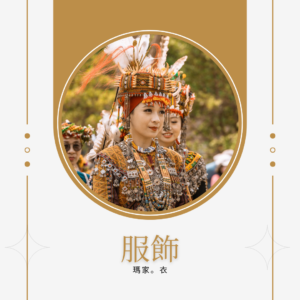
Clothing
| 推薦店家 | 店家電話 | 負責人 | 地址 | 介紹 |
|---|---|---|---|---|
| 荏荏嫚手感坊 | 0933-179004 | 柯真妹 | 屏東縣瑪家鄉涼山村7鄰104號 | 珠串銀飾、琉璃 |
| 原染撒喇蜜工坊 | 0912-794532 0917-950037 | 陳毓芳 | 屏東縣瑪家鄉佳義村泰平巷113號 | 傳統服飾裁縫及手工藝品 |
| 勒戈崖工作室 | 0927-073630 | 馮志正 | 屏東縣瑪家鄉佳義村2鄰22號 | 彩繪設計文創商品、陶藝、木雕,可體驗捏陶、手染、彩繪DIY |
| 桃布理文化創作空間 | 月桃金口包、月桃編拼布夾 | |||
| 金銀婆婆手工藝品皮雕工坊 | 0933-621978 | 包春光 | 屏東縣瑪家鄉排灣村4鄰44號 | 皮雕類商品 |
| 萱之林工作坊 | 0987-123788 | 蕭阿惠 | 屏東縣瑪家鄉排灣村2鄰22-1號 | 鑰匙圈、小錢包、編織手藝 |
| 都拉巴拉斯工作坊(Dulabalas) | 08-7994385 0933-621004 | 賴春菊 | 屏東縣瑪家鄉三和村玉泉巷6-3號 | 皮雕、琉璃珠、木雕 |
| 彌賽亞創意工坊 | 0930-981232 | 許安明 | 屏東縣瑪家鄉三和村美園巷99-9號 | 碎石板畫、貼布繡、髮帶 |

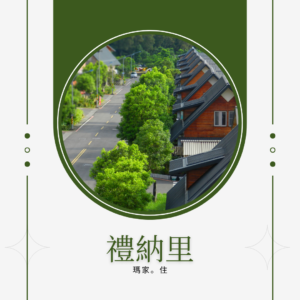
Rinari
Rinari, located within our township, is often referred to as Taiwan’s Provence. “Rinari” is a word in the Paiwan language, meaning “a place where we walk together, and everyone goes there.” Rinari is also known by another beautiful name, “The Village of Shoes Off.” Before entering the home of any resident, one must remove their shoes, symbolizing respect for the land, culture, and the host. For the hosts, those entering the living room are considered honored guests, not merely visitors, but friends and family.
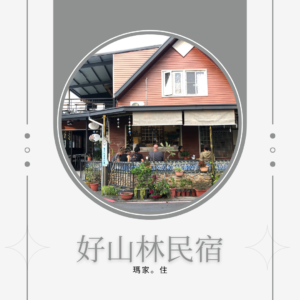
Good Mountain Forest B&B
This warm and cozy B&B feels just like home. The owner is friendly and welcoming, and the rooms are clean and bright, making guests feel truly cared for. It’s a perfect choice for relaxing and unwinding.
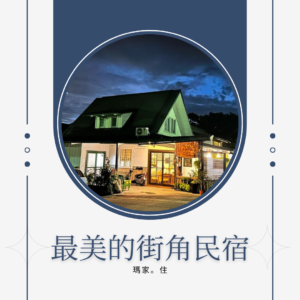
The Most Beautiful Corner B&B
Here, you can feel the love in every detail and the warmth in every corner. It’s a place filled with care and attention, making you feel the peace of mind of coming home.

The Corner of Happiness B&B
This B&B offers a beautiful environment with a wide-open view. Every detail is exquisitely charming, making you feel like you are immersed in a work of art, enjoying endless scenery.
| 推薦住宿 | 店家電話 | 負責人 | 地址 |
|---|---|---|---|
| 拉姆民宿 | 0912-055120 | 盧惠美 | 屏東縣瑪家鄉瑪家村瑪卡札亞街5巷8號 |
| 花仙子民宿 | 08-7997297 | 李春花 | 屏東縣瑪家鄉瑪家村瑪卡札亞街6巷3號 |
| 分享家Enu民宿 | 0920-042738 | 徐惠娟 | 屏東縣瑪家鄉瑪家村瑪卡札亞街7巷5號 |
| 達魯里瓦克伊霖苑民宿 | 0963-656658 | 柳金福 | 屏東縣瑪家鄉瑪家村瑪卡札亞街9巷3號 |
| 楓璟的家民宿 | 0935-279136 | 葉美貞 | 屏東縣瑪家鄉瑪家村瑪卡札亞街15巷7號 |
| 哈馬札武民宿 | 0933-621632 | 唐玉英 | 屏東縣瑪家鄉瑪家村瑪卡札亞街20巷1號 |
| 嵐雲綠海民宿 | 0925-216989 | 冠樂˙督富丘樂 | 屏東縣瑪家鄉瑪家村瑪卡札亞街21巷1號 |
| 轉角遇見幸福民宿 | 0919-725251 | 林寶花 | 屏東縣瑪家鄉瑪家村瑪卡札亞街21巷8號 |
| 好山林民宿 | 0921-686932 | 唐玉好 | 屏東縣瑪家鄉瑪家村瑪卡札亞街23巷1號 |
| 最美的街角民宿 | 0915-363011 | 林玉美 | 屏東縣瑪家鄉瑪家村瑪卡札亞街24巷1號 |


Baibin Mountain
Located in the Beiye section of Majia Township, Baibin Mountain is a popular hiking destination in the Pingtung area. Known for its lush forests, cool temperatures, and expansive views accompanied by the constant sounds of insects, the mountain features well-maintained trails that are easy to navigate, making it one of the more accessible forested peaks in the Kaohsiung-Pingtung region.

Liding Mountain
Liding Mountain is not a towering peak, but it is one of the most frequently visited mountains in the Pingtung area. Its name comes from its resemblance to a traditional bamboo hat (“lì” or conical hat). As a spur of Mount Beidawu, it is also known as “Little Sacred Mountain.”
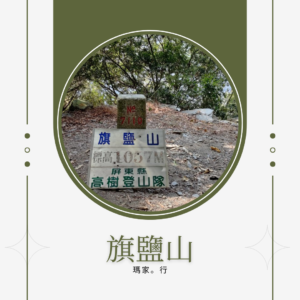
Qiyan Mountain
With an elevation of 1,057 meters, Qiyan Mountain features the No. 7110 third-order triangulation point. It is located above the Gaoyan Tribe, and the trail is well-defined—just follow the ribbons and directional signs to reach the summit.


Chang Jung Baihe Elementary School
Located in Majia Township, Pingtung County, Chang Jung Baihe Elementary School serves students from kindergarten to sixth grade. The school adopts a systematic project-based learning approach, helping children connect knowledge across disciplines while passing down Indigenous culture. Since its founding in 2011, the school has carried the important mission of ensuring educational rights for relocated residents and preserving Indigenous heritage. In 2016, it transitioned into a publicly run experimental elementary school and has since received four Ministry of Education Gold Awards for Teaching Excellence. From its kindergarten through elementary levels, the school focuses on cultivating students’ competencies to face future challenges, nurturing them to become future talents of their communities.
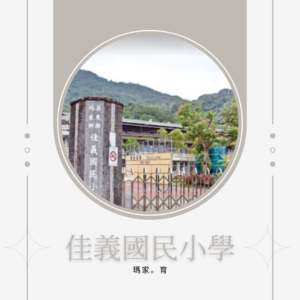
Jiayi Elementary School
Located in Jiayi Village, Majia Township, Pingtung County, Jiayi Elementary School upholds the educational philosophy of “building future competitiveness for Indigenous children.” The school offers a diverse range of programs—such as volleyball, archery, choir, art, and traditional songs—providing students with a variety of enriching experiences throughout their educational journey.

Beiye Indigenous Experimental Elementary School
Located in Beiye Village, Majia Township, Pingtung County, Beiye Indigenous Experimental Elementary School is guided by the vision of “teaching children to become true kacalisiyan.” Rooted in local culture, the school fosters a strong sense of cultural identity and nurtures four key competencies in its students—learning ability, cultural awareness, character strength, and physical well-being—to prepare them for the challenges of a globalized world.
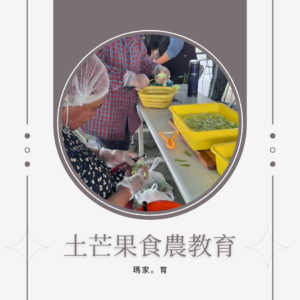
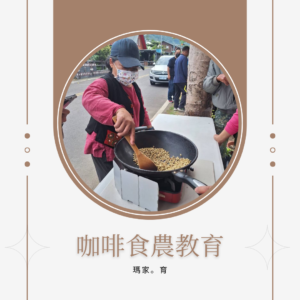
Regular Agri-Food Education Programs
Agri-food education emphasizes understanding the origins of food, agricultural ecosystems, and their environmental impacts. Our office regularly hosts classes on coffee and native mangoes, offering participants the chance to learn about coffee cultivation, processing, and to enjoy seasonal native mangoes—deepening awareness of local agriculture.

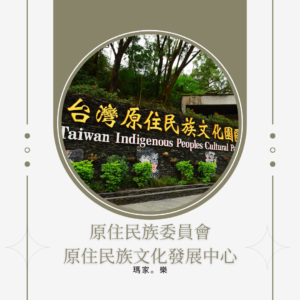
Council of Indigenous Peoples – Indigenous Peoples Cultural Development Center
As times change, Taiwan’s Indigenous communities have become increasingly aware of the importance of preserving their cultural heritage. In response to recommendations from tribal leaders and experts from various sectors, the government eventually established a cultural park functioning as an outdoor museum for Indigenous peoples.
In 1976, the Taiwan Provincial Government initially planned to establish a “Mountain Indigenous Culture Village” with the aim of preserving and maintaining Indigenous cultures, supporting academic research and exchange, promoting social education, and aligning with the development of tourism. Following the fifth constitutional amendment in 1994, the term “mountain” was officially replaced with “Indigenous,” and the agency was renamed the “Taiwan Indigenous Peoples Cultural Park Administration.” On January 15, 2016, it was reorganized and renamed the “Indigenous Peoples Cultural Development Center under the Council of Indigenous Peoples,” maintaining its affiliation with the Council.
Through the establishment of this government-run cultural park, the goal is to continuously strengthen its role in cultural interpretation, while offering both domestic and international visitors an educational and respectful journey into the richness of Taiwan’s Indigenous cultures.
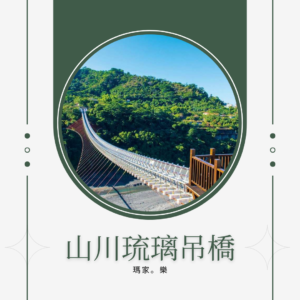
Shanchuan Glazed Suspension Bridge
The Shanchuan Glazed Suspension Bridge is located within the Indigenous Peoples Cultural Development Center of the Council of Indigenous Peoples, connecting Sandimen Township’s Sandimen Village with Maijia Township’s Beiye Village. With a total length of 262 meters and a height of approximately 45 meters, it is the longest bed-style suspension bridge in Taiwan. The design of the bridge incorporates the imagery of glazed beads representing the Paiwan and Rukai tribes, with indigenous motifs of the hundred-step snake on both sides, telling the stories of the Indigenous peoples. From the bridge, visitors can enjoy a breathtaking view of the surrounding mountains. In the evening, the bridge is illuminated with a unique light sculpture display, showcasing a large, beautiful artwork that celebrates the traditional culture of Taiwan’s Indigenous peoples.
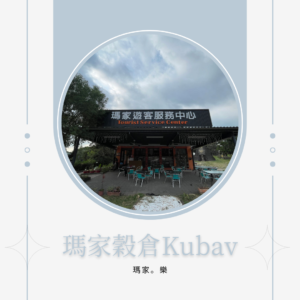
Maijia Granary (Kubav)
Located at the entrance to the Rinari community in Maijia Village, Pingtung, the Maijia Granary (Kubav) features a striking orange-colored building that is hard to miss. In addition to offering Paiwan tribal-style dishes, visitors can also purchase unique indigenous souvenirs such as red quinoa tea, red quinoa jelly, tree beans, red quinoa, and coffee.
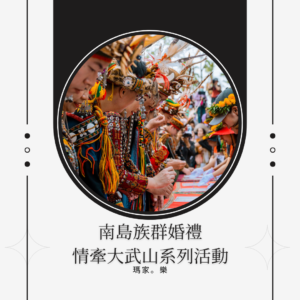
The Austronesian Wedding Series: Tying the Knot at Dahu Mountain
The Austronesian wedding is a large tribal wedding event held in rotation by three northern Paiwan villages in Pingtung County (Sandiemen Township, Maijia Township, and Wutai Township). Promoted with the assistance of the Tourism Bureau’s Maolin National Scenic Area Administration, this event has been held annually since 2004 and has entered its 16th edition. Over the years, the event has not only attracted a significant number of tourists but has also enhanced the tourism visibility of the three indigenous townships in northern Pingtung.
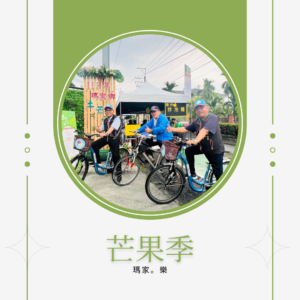
Mango Season
The土芒果 (Tǔ Mángguǒ) is one of the most renowned agricultural products in Maijia Township. Thanks to recent marketing efforts, Maijia’s土芒果 has gradually built a strong brand image among consumers in Taiwan. The peak production season runs from April to June, and the township plans to expand the “土芒果 Series Activities,” which will promote not only土芒果 but also other local agricultural products like papayas, Chinese toon, millet, tree beans, coffee, red quinoa, and cocoa. Besides Maijia’s unique geographical and climatic conditions, successful marketing campaigns have also played a crucial role in raising the profile of these products. Over the years, Maijia’s agricultural products have received significant recognition from the public, and the township residents are hopeful that this year’s events will again boost Maijia’s visibility, expand its market reach, and drive local economic growth.
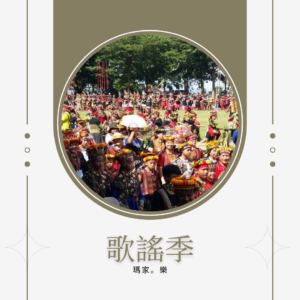
Song Festival
The daily practices and languages of the Austronesian peoples are essential parts of their culture. However, with the acceleration of globalization and the advancement of modernization, these precious cultural heritages are facing the risk of being lost. Many traditional songs and languages are gradually being forgotten due to a lack of transmission. To revive and preserve these valuable cultural resources, the Song Festival was conceived. Its aim is to promote cultural heritage and innovation through various activities such as recording traditional songs, holding presentation events, and organizing outdoor markets. In the future, we hope to establish a sustainable platform that will encourage more people to participate in the protection and development of Austronesian culture, ensuring the long-term preservation and flourishing of this cultural heritage.
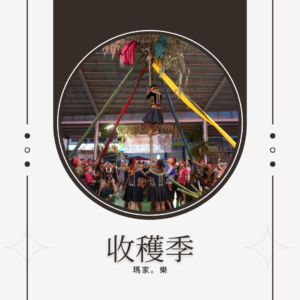
Harvest Season
Every year, in mid-August, we hold the Joint Harvest Festival, as this is the season when major crops like millet are harvested. It symbolizes the completion of one farming cycle and the beginning of a new one. To express gratitude for the blessings from the ancestors and nature, we celebrate the harvest of the year and pray for a successful and bountiful harvest in the coming year. The Harvest Season is a significant time for bringing the community together and preserving cultural traditions, as it serves as a moment to reflect the connection between people, nature, and the ancestors. The harvest celebrations in each community are typically held in July or August, depending on the local announcements.
| 推薦景點 | 電話 | 地址 | 介紹 |
|---|---|---|---|
| 涼山遊憩區 | 08-7993520 | 屏東縣瑪家鄉涼山村14-20號 | 涼山遊憩區內的涼山瀑布係瑪家鄉著名景點之一,期共分三層,第一層瀑布區水流和緩,蓄水成潭,適合全家大小出遊,而第二及第三層瀑布適合賞溪觀石,健行、賞鳥的最佳選擇。 |
| 禮納里遊客中心 | 08-7997245 | 屏東縣瑪家鄉和平路一段63號 | 館內設有無障礙旅遊諮詢服務櫃台、哺乳室及智慧型設備充電等服務設施,提供遊客排灣族原民服飾體驗活動。此地亦為欣賞屏東平原視野極佳之處,可登上2樓觀看夕陽餘暉。 |
| 瑪家穀倉(瑪家鄉遊客中心) | 08-7997070 | 屏東縣瑪家鄉瑪家村瑪卡札亞巷1號 | 因八八風災之故,瑪家部落族人擴居至禮納里部落,部落需要一個適當的空間來將老部落生產農作與文化工藝與大家分享,因此創建Kubav瑪家穀倉。 |

